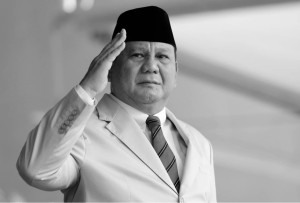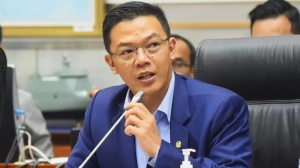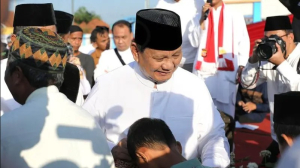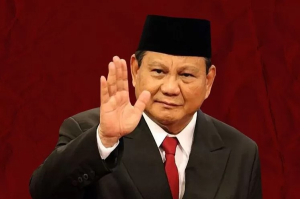Economists: Prabowo should reduce dependence on foreign investment, tackle de-Industrialization
President-elect Prabowo Subianto has to strengthen domestic investment in order to reduce Indonesia's dependence on foreign capital investment and at the same tackle the problem of de-industrialization, economists have suggested.
Managing Director at the Political Economy and Policy Studies (PEPS), Anthony Budiawan, said the majority of Indonesian business and industry sectors are controlled by foreign investment.
"The recent problem in the development of downstream industry and in the financial sectors, such as BCA, CIMB, Bank Permata, all of them are controlled by foreign investors," Anthony told Indonesia Business Post in an interview on October 2, 2024.
He admitted that the flooding of foreign investment into Indonesia will spur the country’s economic growth, but reminded that the majority of its results will be enjoyed by the foreign investors that Indonesia need to reclaim the ownership of domestic companies.
In an attempt to reclaim the shares of the companies, Indonesia needs to strengthen its domestic small and medium sized enterprises (SMEs). He suggested that the government needs to increase the capacity of SMEs in terms of capital incentives, knowledge and technology.
In his opinion, it is quite difficult for SMEs to secure funding in Indonesia. He cited the credit ceiling for SMEs in Bank Rakyat Indonesia which is only for Rp 50 million (US$3,195).
“This credit ceiling must be expanded. It must be evaluated for business feasibility and other purposes," Anthony said, while citing that SMEs in Indonesia has the economic feasibility, but not the capital.
On the other hand, he also suggested that the Prabowo government needed to develop the country’s agricultural sector.
“Currently, the majority of Indonesian food are imported. If Indonesia can self-supply its food demand, it will boost the economic growth,” he said.
In order to increase the productivity of the acricultural sector, the president needs to include universities in the process.
"If we look at the Netherlands for example, its government empowers the Wageningen University to do research on how to increase agricultural productivity.
As a result, they can find new varieties or improve existing varieties by conducting research on the purity of their seedlings and the seedlings will be distributed to the society," he cited.
The problem in Indonesia, Anthony added, is the fact that the seedlings is monopolized by conglomerates. There is also rent seekers who collaborate with elements in the agricultural ministry. “So the government need to re-organize the system.”
De-industrialization
Tarli Nugroho of the Institute for Policy Studies (IPS) said one of the keys to boost Indonesia’s economy is the manufacturing sector or industry. He cited that in the last 25 to 26 years, Indonesia has been experiencing de-industrialization. As a result, contribution of the manufacturing sector to GDP is continuing to decline from the previously above 20 percent, to around 18 to 19 percent.
“Indonesia currently enters the era of e-commerce, but if we pay attention on the phenomenon, all products traded in the e-commerce are manufactured in China. Chinese products are flooding the Indonesian market. So, they are not local products. There is no multiplier effect in our economy,” Tarli said.
He suggested that Indonesia should follow China’s strategy in achieving economic growth of above 10 percent because of the manufacturing sector development.
“To encourage growth of the manufacturing sector, the Prabowo administration needs to give huge incentives for investments in the sector,” Tarli, who is also a member of Gerindra Party, said.
He praised the Prabowo administrations’s focus on human development through the free nutritious meal program, citing the Indonesian people’s low nutrition consumption.
”How can we lead in the manufacturing sector if our human quality is low?” he asked.
He insisted that the free nutritious meal program is not a state charity, but a strategic policy that will create demand in the food, agriculture and animal husbandry sectors.
Tag
Already have an account? Sign In
-
Start reading
Freemium
-
Monthly Subscription
30% OFF$26.03
$37.19/MonthCancel anytime
This offer is open to all new subscribers!
Subscribe now -
Yearly Subscription
33% OFF$228.13
$340.5/YearCancel anytime
This offer is open to all new subscribers!
Subscribe now






